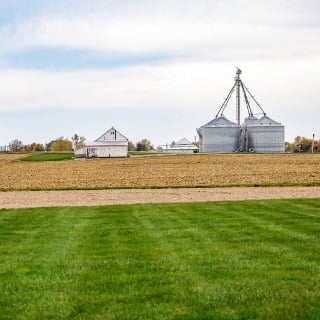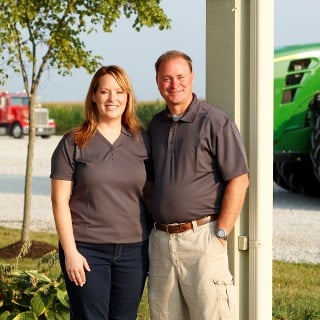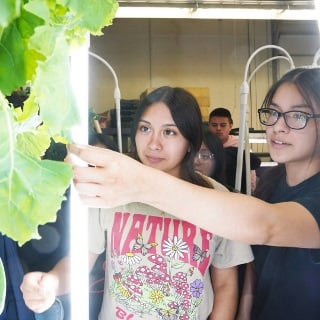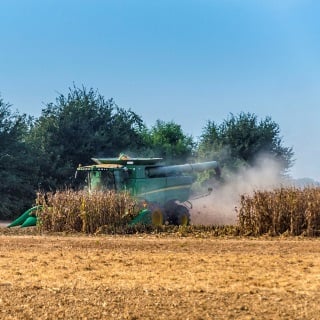Ellis Bell wanted to be a farmer for just about as long as he can remember. Today, that dream has been long realized. As a fourth-generation farmer, he operates an Arkansas Century Farm established in 1878 in Forrest City, Arkansas on land purchased by his great-great grandfather after he returned from the Civil War.
“I always wanted to be a farmer,” Bell says. After he finished high school in 1956, he was going to stay and farm, but the opportunity arose to head to St. Louis just for the winter. So he did, with intentions to return to the farm. As fortune would have it, in a turn of events, Bell ended up spending 13 years in St. Louis as an aircraft mechanic. After, he took interest in the insurance industry and worked to build an extremely successful business as an insurance broker, leaving the aircraft industry behind. He sold insurance exclusively at that point but still came back to Arkansas to help out on the farm on the weekends. For decades, he operated a food giveaway program in St. Louis, which distributed food to thousands of needy people.
When his father opted to retire in 1971, Bell had some decisions to make. Ultimately, he chose to come back to work the land. “Of course, at the time people said I was crazy,” Bell noted. “Most didn’t think I’d be able to make the transition, juggle it all, and succeed on the farm.”
To make things easier, Bell purchased an airplane, enabling him to fly back and forth between St. Louis and Forrest City. As his insurance business expanded in Missouri, the farm also expanded. Life was busy and stressful, but not so frenzied that Bell, in typical fashion, did not recognize a need when he saw one. Back in the city, Bell noticed kids with nothing to do and realized those young people would benefit greatly from learning about life in agriculture, where their food came from, and who was responsible for growing it. And knowing how he was discriminated against as a black farmer in the Midsouth, he saw real benefit in having a hand in teaching them and giving minorities a greater role in agriculture. So, for those reasons the idea for his non-profit was born.
Meanwhile, he had purchased stock in Monsanto—as many had—and decided to go to an annual stockholders’ meeting that ended up changing his life, as well as the lives of all those he would touch with his future non-profit organization. During the meeting, attendees were testifying about how Monsanto had affected their lives. The company was growing; its stocks were performing well. It was an emotional moment for Bell. While it may have appeared he was doing well, he wanted the board to know how he felt about the lack of attention paid to black kids and the issues they faced. He was moved to stand up and tell the board just that; and after listening to him, the Chief Executive Officer asked him to stick around and meet with him about it. Had Bell not stood up that day, it’s possible things wouldn’t have turned out exactly like they did—with the support of a company like Monsanto.
He soon started a nonprofit called FARMY, “Future Agriculture Resources for Minority Youth. When he began to bring in funds from other outside sources, he made the decision to change the name to Bell’s Agriscience.
About this time, Bell realized the farm was where he really wanted to be. “I liked what I saw on the farm, and not so much what I was seeing in the city,” Bell said. He felt like his true passion was there on that land. So, he made the decision to return to the farm full-time. It wasn’t until 1990 that Bell was recognized as a farmer by the county his farm is in.
Today, Ellis Bell Farm covers about 570 acres, which Bell describes as a perfect, “just-right” size. He has nothing but positive words for the relationship he has developed with his Farm Credit lending officer, VP, Branch Manager Stanley Mitchell. He speaks of going in about every three years, evaluating his needs on the farm, asking any questions he may have, and just generally talking about his ideas and getting feedback from Stanley’s point of view, one he greatly respects.
Bell fought to overcome the discrimination he felt in the earlier years of his farming career. And he has definitely felt a sense of satisfaction that he did not have to go back to those who had told him “no” time and again. His prior experiences pre-Farm Credit were not always positive, but there has been great joy in his farming journey and even greater joy in the life-changing impact of Bell Community Services, Inc.
Founded 2007
Bell Community Services, Inc.
Mission: Life-Changing Learning Experiences for Urban Youth
The Bell Agriscience Pipeline exists to help underprivileged youth become career-ready, cultivate interest in the agriculture industry, and develop interns at the high school and college levels plus flow them into this multi-billion agriculture sector of America’s economy.
The organization reaches middle, high school, and college students through a well-established network of mentorship, club membership, education, and scholarship in a wide range of agricultural disciplines.
For more information and available opportunities visit Bell Ag Tech.





